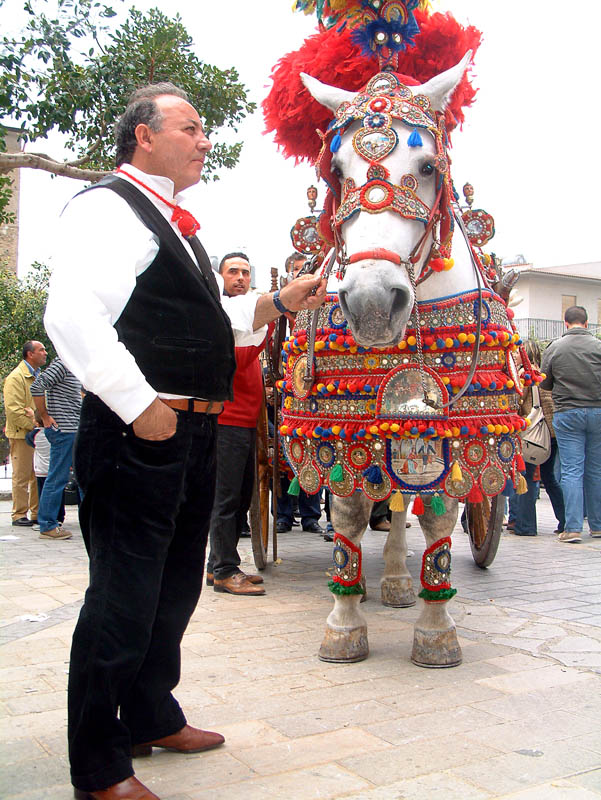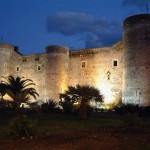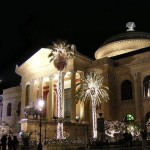In this section we will show you the most particular features of Sicilian culture, made of a variety of other cultures, which have offered to Sicily richness and contradictions at the same time.

Probably, the most obvious aspect you can see arriving in Sicily is the use of Sicilian dialect, which is a closed vowels version of Italian language. Certainly, it is characterized for being influenced by all folks who ruled the Island.
The presence of name with Iberian origin, such as “catalano”, “Garcia”, etc should seem curious, especially for Spanish people. The reason is that Sicily was part of the Crown of Aragon: many Spaniards passed through these lands and some stopped here (more information about Sicilian surnames).
One of the most typical traditions, which unfortunately is going to disappear, is the Sicilian Puppets Opera, traditional puppets reproducing the knightly struggles between Franks and Normans. And it is impossible to forget the “carretto siciliano” (Sicilian cart), painted in bright colours and decorated with scenes of chivalrous struggles or religious episodes. These carts are carried in procession in every event, such as carnivals in Sicily.
Sicilian mythology is full of incredible stories about gods, heroes and legends, passed on in the Greek age. From the myth of Aci and Galatea to the nymph Arethusa one, this literary vocation was continued by great masters of literature, such as Verga, Quasimodo or Pirandello. (read more about Sicilian literature).
Sicilian Folklore
Religious feasts are really full of intensity in Sicily and they represent something more interesting about Sicilian society. Despite the religious zeal is more a participatory event rather than devoted, celebrations during religious feasts are plentiful and recurring. Undoubtedly, festivities for Sant’Agata (Saint Agatha) in Catania are a good instance of the combination of tradition and society in Sicily. Another way to discover Sicily is through films linked to traditions, which show a set of rustic nature (“Volcano” and “Stromboli”), mafia episodes (“Il Siciliano”) and people character (“Cinema Paradiso”).





